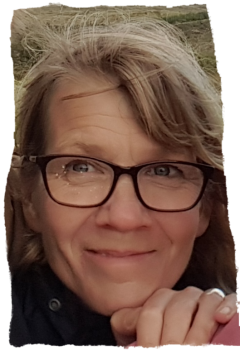The association between knowledge and power sits at the heart of much of my thinking around art museums. Issues of who feels welcome in the museum, whose ideas and interpretations are valued and whose voices are heard most loudly are all entangled in, and shaped by how knowledge is constructed in relation to power. Looking at this has helped me understand why museums can operate in exclusionary ways. It has also informed my views on how research needs to acknowledge and ideally act to disrupt practices that reinforce entrenched prejudices around what constitutes valuable knowledge.
I have found the writings of the philosopher Michel Foucault to be hugely helpful in tackling this issue. His argument that knowledge is intrinsically linked to power and is formed within the context of practices of power makes sense to me. As does his recognition that dominant discourses define and legitimise certain knowledge whilst excluding other forms of knowing.
Take for example, LGBTQ+ representation in museums. Historically, stories and images of same-sex love and desire, have been largely excluded from heritage sites, museums and galleries across the world. Falling outside of dominant societal narratives, representations of gender diversity have themselves been marginalised.
And although over the last decade representations of diversity have increased, in museums there is still a way to go. Rachel Lennon, National Programmes Curator for the National Trust puts it clearly when she says, ‘the historic characters we meet on our day out still disproportionately reflect male, white, elite, straight, cisgender, non-disabled lives. This minority continues to dominate the understanding and presentation of all our history’. The museum or heritage site can be guilty of maintaining the dominance of the powerful by continuing to naturalise meanings that confirm the existing social and cultural order. This practice has far reaching implications, for, as Rachel goes on to say, ‘the exclusion of LGBTQ+ narratives from public history, from the mainstream of the cultural heritage sector, not only displaces the lives that have been omitted or misrepresented, it dislocates LGBTQ+ people from their shared past’.
What Rachel is saying so clearly is that, in their presentations of art, cultural institutions tend to reinforce the powerful. Those whose beliefs, values and identities are well represented within museums and galleries are further legitimised, whilst those whose cultural forms are excluded, themselves remain so.
This can too often be the case for young children, whose voices and knowledge can be undervalued or disregarded by museums. I am therefore encouraged by the Lines of Enquiry research being undertaken at the Fitzwilliam museum in Cambridge that is seeking to address this imbalance and foreground very young children’s experience in the art museum.

In a seminar I attended on January 31st at the Fitzwilliam I heard from Professors Chris Pascal and Tony Bertram from the Centre for Research in Early Childhood (CREC) who are utilising research methodologies that privilege the voices of young people. And I learnt from researcher Dr Abi Hackett how museums and those researching children’s experience within them need to acknowledge the shifting changeable nature of knowledge and buildings. Abi argued against the separation of knowledge and place and instead advocated for more complex intertwined formulations that allow for an ‘unravelling’ of the customary order of knowledge. She saw this as a way of destabilising conventional power/knowledge relationships.
Like myself, each of the researchers presenting at the seminar acknowledge the political nature of research and the importance of adopting an ethical position in relation to knowledge. It was an inspiring day to hear others speak so eloquently about this.


2 thoughts on “Knowledge and power – researching young children’s experience of the museum”